Yashoda Hospitals > News > India’s Largest Conference & Live Workshop on ECMO at Yashoda Hospitals Hitec City
India’s Largest Conference & Live Workshop on ECMO at Yashoda Hospitals Hitec City
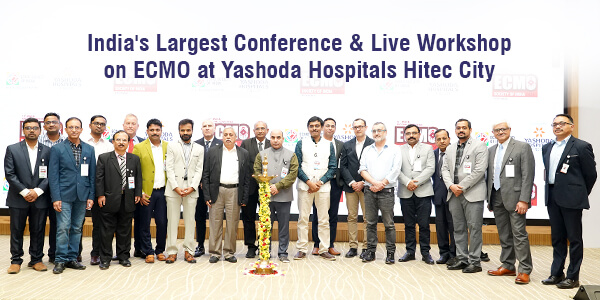


Successful International ECMO Conference & Live Workshop with Over 1000 ECMO Doctors & Renowned Critical Care Medical Experts
Yashoda Hospitals Hitec City organized the 13th International Conference & Live Workshop on ECMO, hosted by the ECMO Society of India. ECMO, or Extra Corporeal Membrane Oxygenation, is one of the most advanced life-saving support systems for severely damaged lungs and heart. In this 13th international Conference & Live Workshop, over 20 of the world’s best international faculty and over 100 renowned national faculty provided practical simulation-based training and learning to over 1000 participating ECMO & Critical Care doctors from all over India during this 3-day international event. It is one of the largest ECMO conferences held in India in the last decade. Adult & Pediatric Doctors, Paramedical Staff, Perfusionists, Nursing, and Respiratory Therapists participated in this 13th international Conference & Live Workshop.
On this occasion, Yashoda Hospitals Director, Dr. Pavan Gorukanti, said, “Although ECMO was designed almost forty years ago, its usage was limited due to the lack of research and experience. This ECMO device is highly advanced and has become more reliable in critical situations where the heart and lungs are not functioning. The need for ECMO has increased significantly after the COVID-19 pandemic in India. Yashoda Hospitals played a crucial role in saving patients with the help of ‘ECMO’ during the Covid epidemic. More than 100 Air Ambulance transfers from various parts of India have been done to Yashoda Hospitals to save lives with ECMO support and lung transplantation,” Dr. Pavan Gorukanti added.
Yashoda Hospitals-Hitec City Senior Critical Care Medicine Specialist, Dr. Venkat Raman Kola, stated, “ECMO is a device that takes you from the brink of death to a full life again. When a person’s heart and lungs are not working, the ECMO device is used to perform the functions of the person’s respiratory and cardiac functions outside the body. First, bad blood is removed from the patient’s main vein (the valve that carries bad blood to the heart) through a catheter. The carbon dioxide in it is removed and sent to the oxygenator in ECMO; after providing oxygen to the red blood cells, it is sent back to the body through another catheter.” Dr. Venkat Raman Kola concluded, “More than 1000 Critical Care doctors attended this live conference through the international Conference & Live Workshop.”
News Coverage:
- https://telanganatoday.com/hyderabad-indias-largest-conference-live-workshop-on-ecmo-organised-at-yashoda-hospitals
- https://jantaserishta.com/telangana/indias-largest-conference-and-live-workshop-on-ecmo-held-at-yashoda-hospital-1107676
- https://www.eenadu.net/telugu-news/districts/Hyderabad/529/124012993
- https://telanganatoday.com/hyderabad-indias-largest-conference-live-workshop-on-ecmo-organised-at-yashoda-hospitals
- https://www.manatelangana.news/international-conference-on-ecmo-live-workshop-at-yashoda-hospitals/
- https://bnnbreaking.com/breaking-news/health/13th-international-ecmo-conference-unveiling-advances-in-lifesaving-technology/
- https://hyderabadnow.in/2024/01/21/international-conference-on-ecmo-held-at-hyderabad-hospital/
- https://epaper.andhrajyothy.com/article/Hyderabad?OrgId=2214c9b4a48&imageview=0&standalone=1&device=mobile
- https://www.thehindu.com/news/national/telangana/international-conference-on-ecmo-held-at-hyderabad-hospital/article67759809.ece
- https://www.ntnews.com/telangana/ecmo-support-may-save-lives-in-covid-1442803



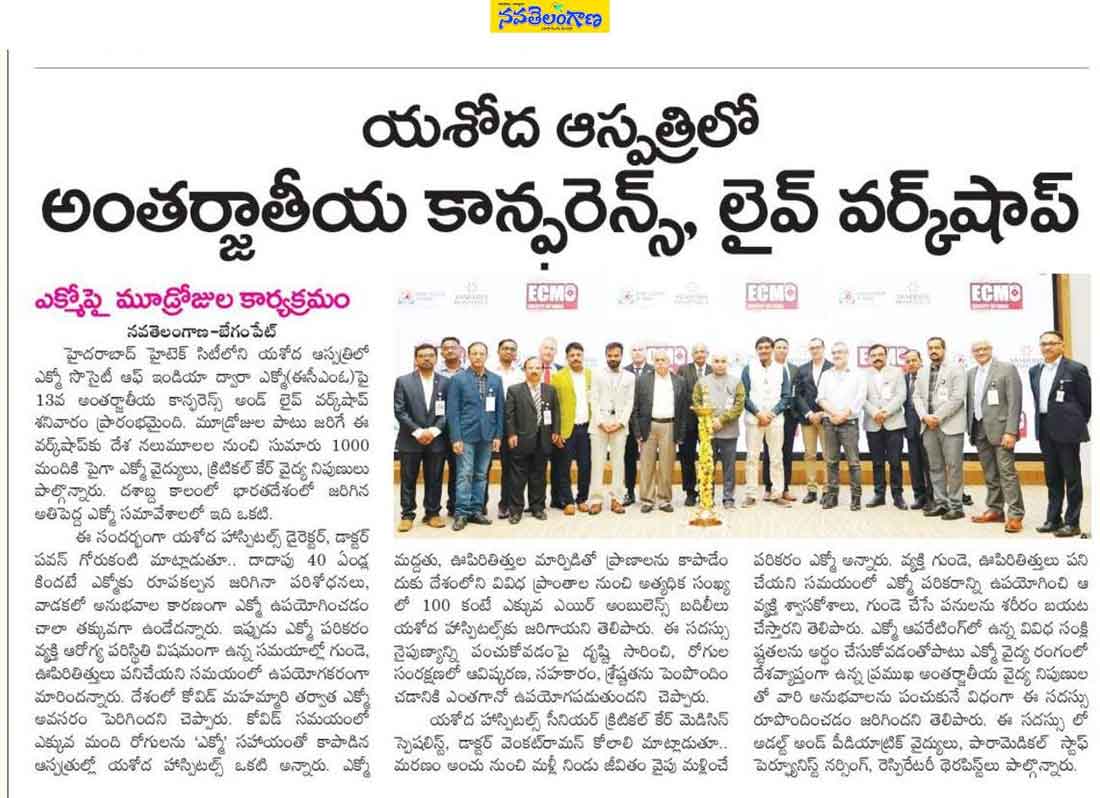
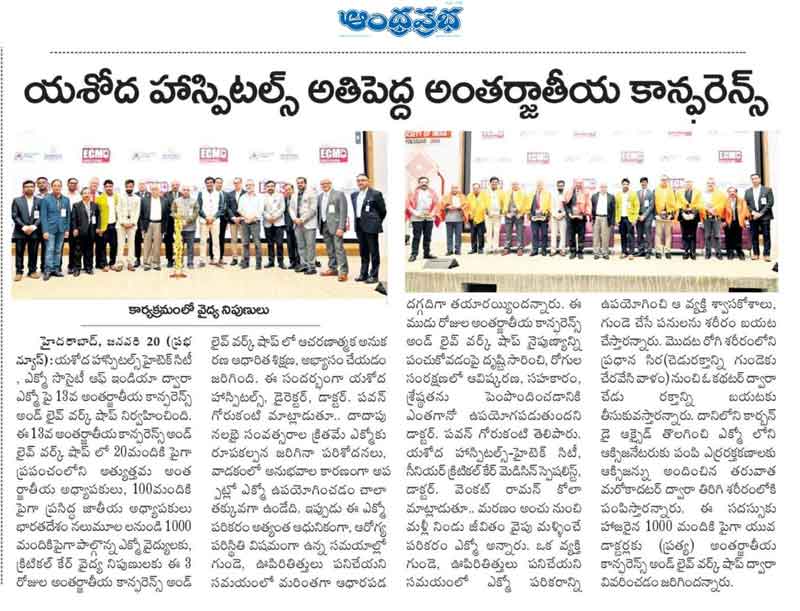
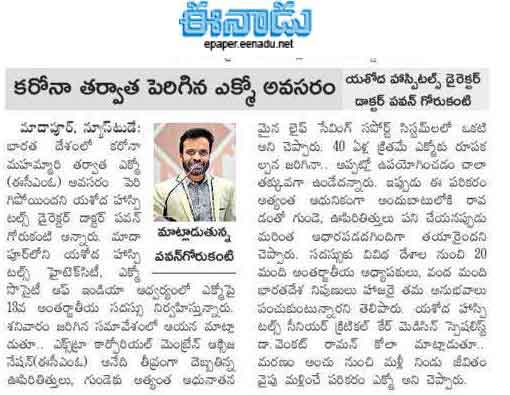
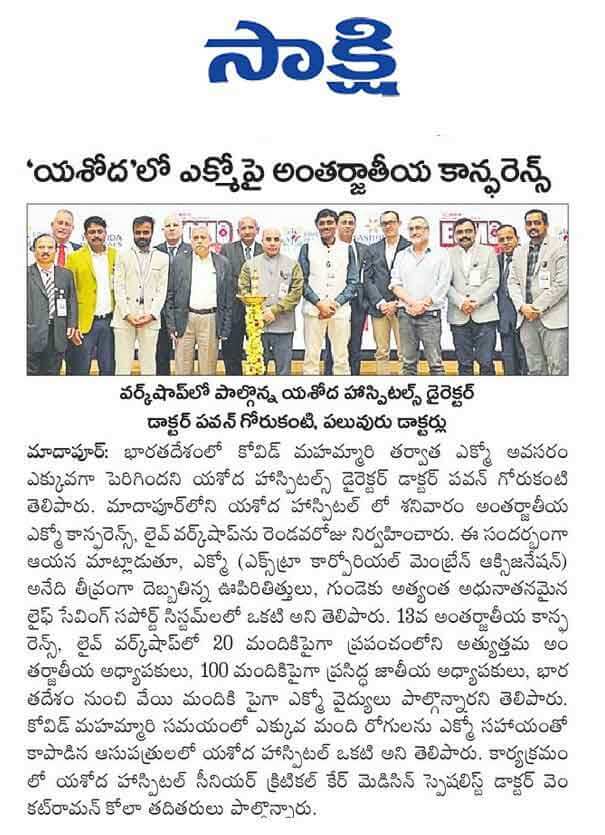
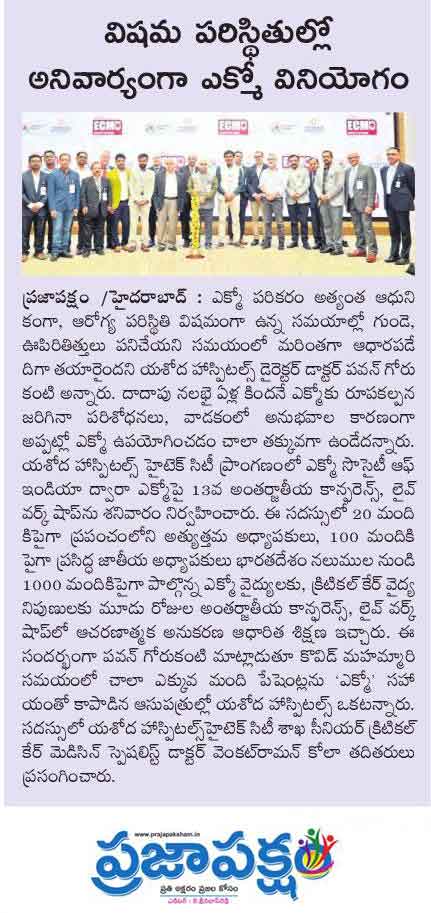
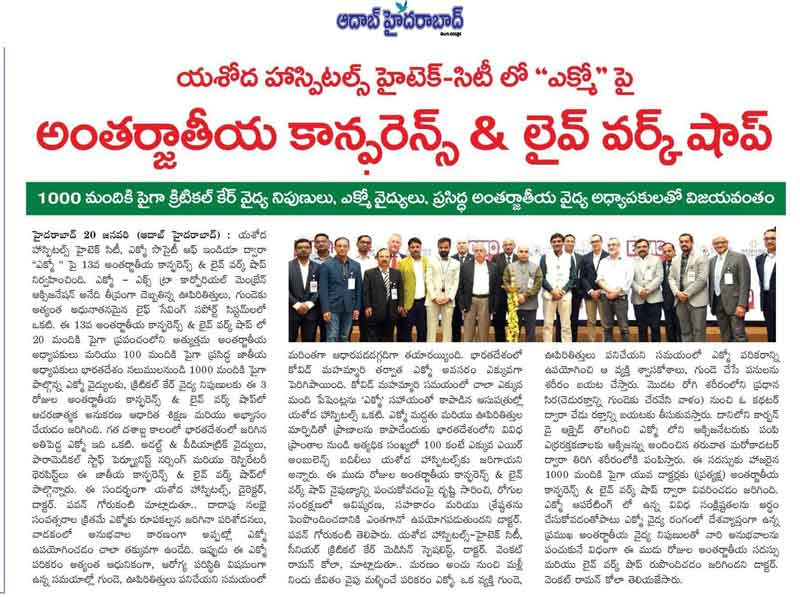
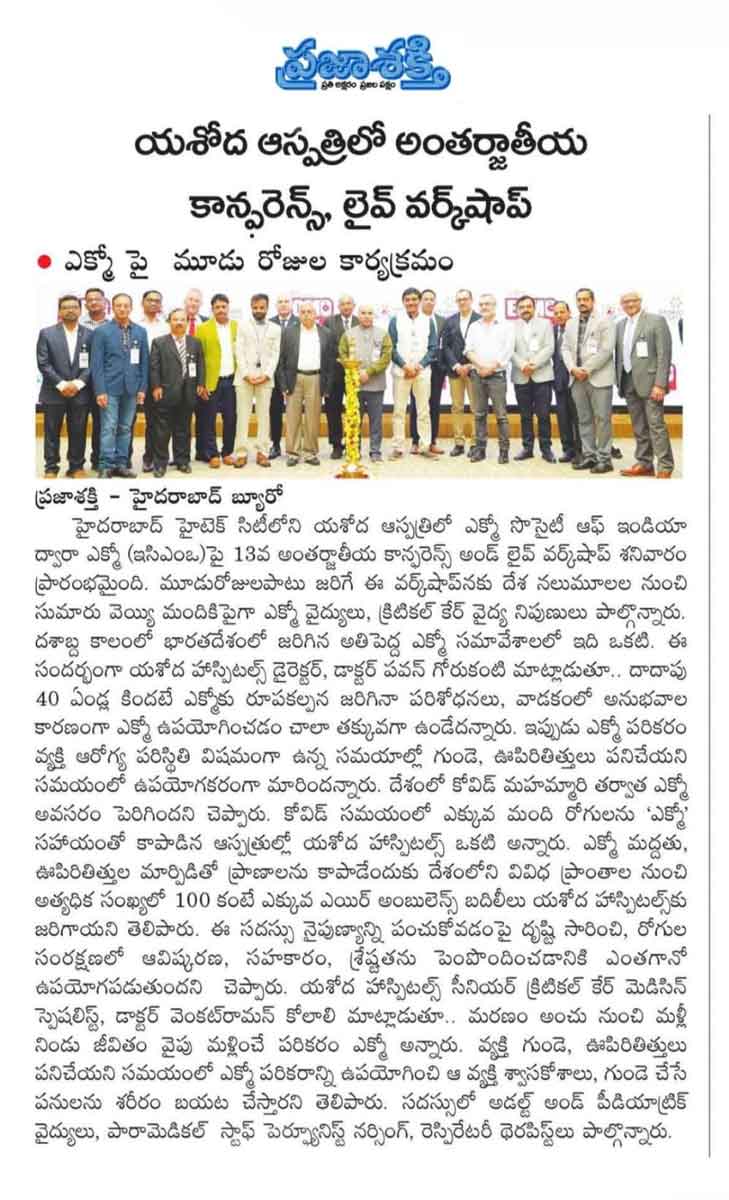
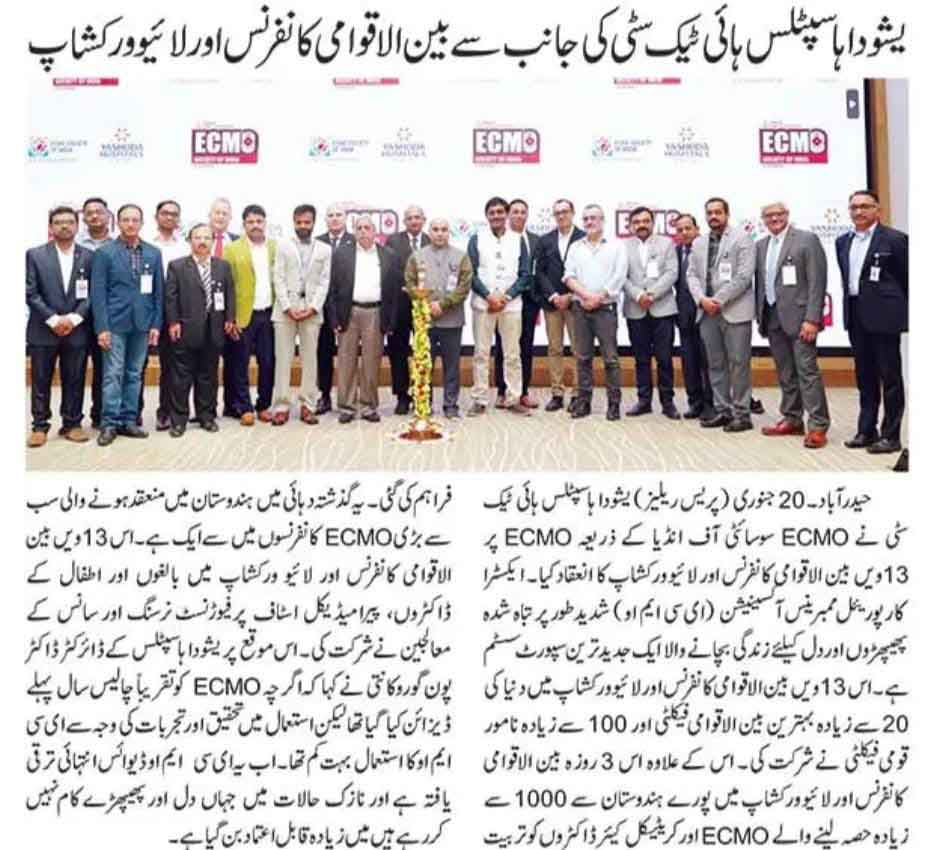
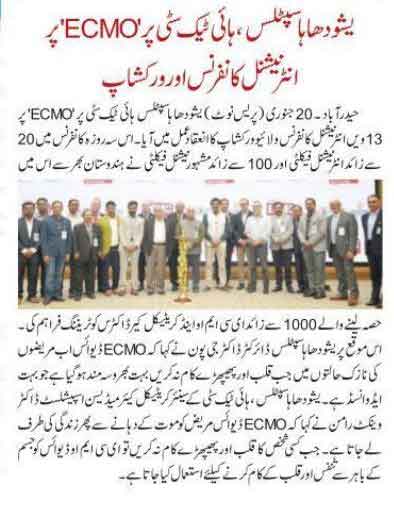
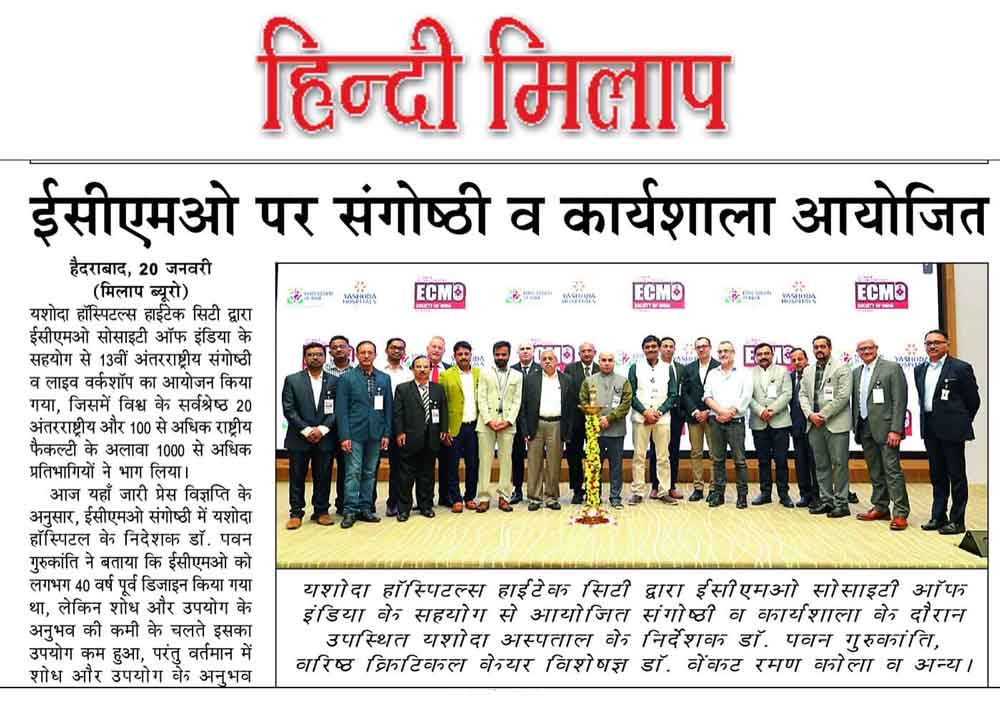
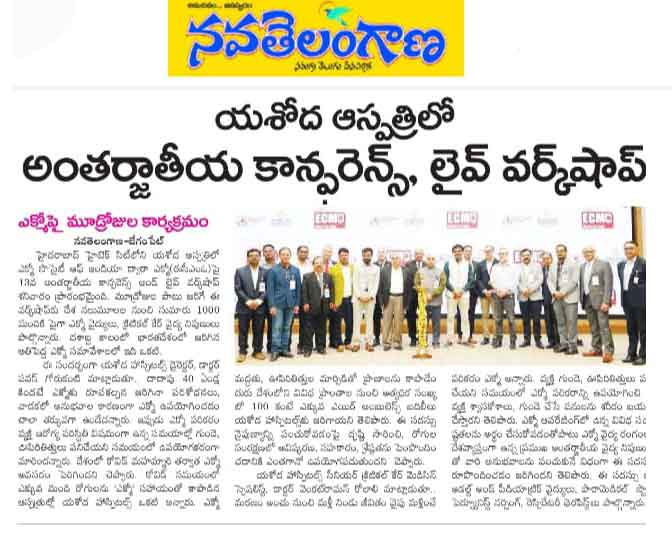
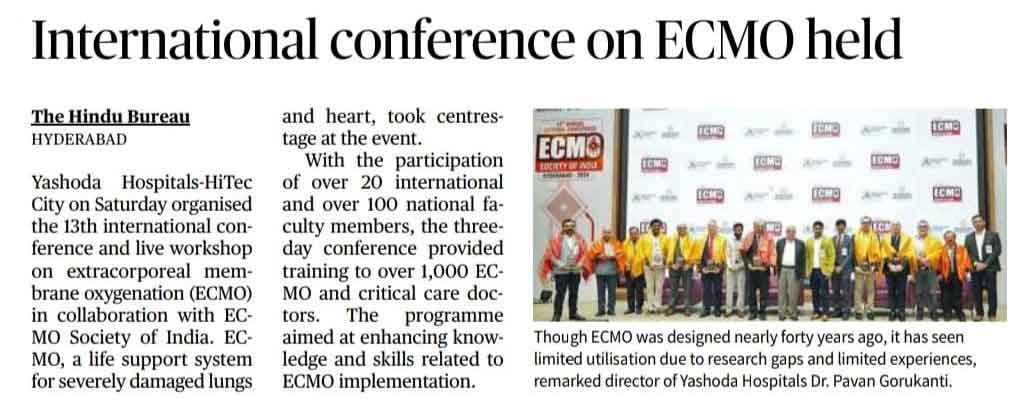
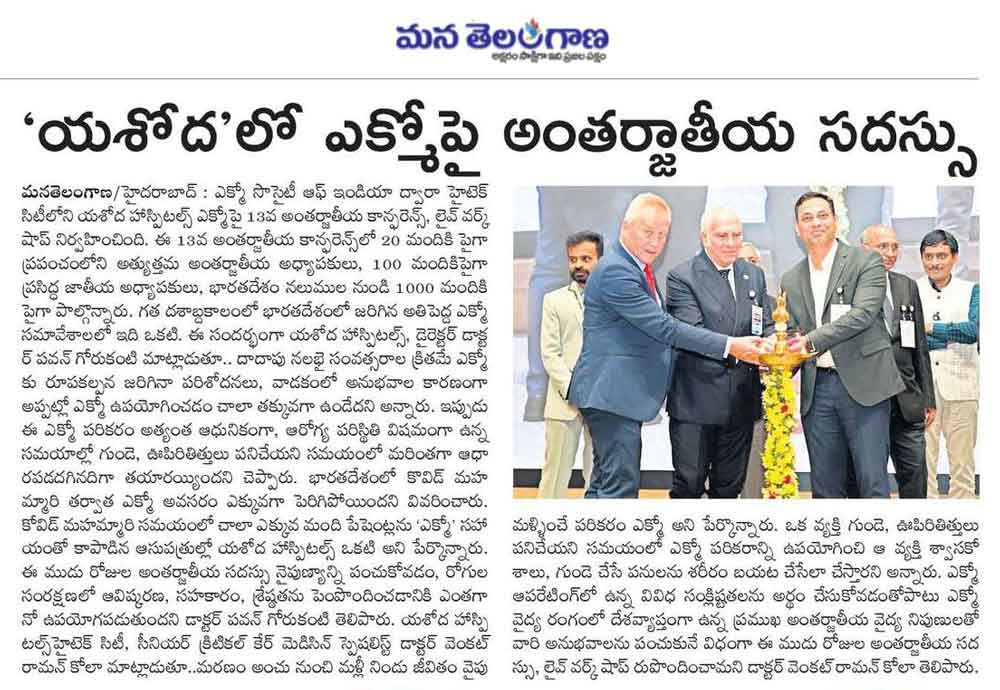
 Appointment
Appointment Second Opinion
Second Opinion WhatsApp
WhatsApp Call
Call More
More





